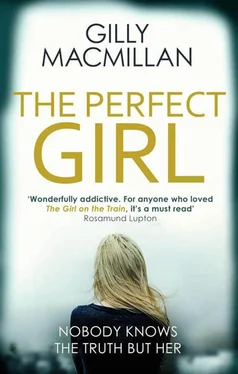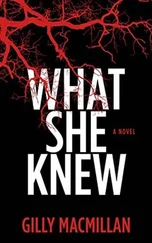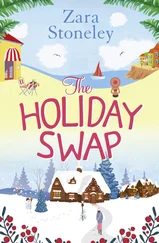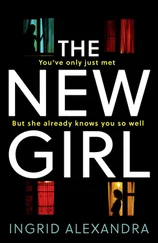I wanted to warn Zoe too, because my mum couldn’t stand up to him alone, or even with me; you need more people than that and I thought Zoe could help me help Maria.
But Zoe was right: I sent it too late.
I don’t look at Dad while the film is playing on the TV. I do stop thinking of ways I would have shot it and I look instead at the faces of everybody except him and I see the horror there, as they witness what I have witnessed all my life.
On the TV we suddenly lose the moving images. I dropped my phone right after Dad slammed my back against the wall, which was the moment just before Maria caught him by surprise and managed to pull him away.
All you can see on the film when that’s happening is the ceiling of our landing, the chandelier glinting with dim reflected light from the bedroom.
But you can hear the scuffle as she pulls him away, and then she says, ‘Are you OK?’ to me, which is hard to hear because as soon as Dad has recovered himself, which only takes a second or two, he says, ‘You little bitch,’ and then there’s the sound of movement from when I tried to push her out of the way, and you hear Maria gasp, and then there’s the sound of her hitting the banister post, and then the fall.
I started to scream then but Dad put his hand over my mouth before I could make much of a noise, and we both watched the blood seeping out of the back of her head and pooling on to the varnished wood on the stairs.
Just a few moments after that, the film stops. I picked up the phone and stopped it recording while Dad clattered down the stairs to see if he could save her.
The really important thing is that you can’t see that it was me pushing Maria out of the way of Dad that sends her falling down the stairs. To listen to the footage, it’s exactly as if he has done it. It’s the inevitable result of his violence.
To make that extra clear, just like Zoe told me to, I turn to the room and I look the Family Liaison Officer in the eye and I say, ‘He pushed her.’
Then, for the second time in twelve hours, Dad advances on me with his hand clenched into a fist.
I put my hands up to protect my face and curl up in my seat.
He never hits me though, because Philip stops him in time.
‘Don’t you dare,’ Philip says. ‘Don’t you dare!’ He pushes Dad back down on to the sofa, and holds him there.
‘Are you really going to do this?’ Dad asks me. ‘Lucas? Have you thought this through? Do you think you’d like to tell the truth?’
I have to look away from him then, and to force myself to do it, to keep myself strong. It’s so incredibly hard not to reply, but I mustn’t. Zoe said all we have to do is to stick to our story, and I will.
Zoe does her bit then, she says, ‘I saw it. I came out of my bedroom when I heard Chris shouting. My mum was trying to protect Lucas, and Chris pushed her down the stairs. He pushed her so hard, and he hurt me too,’ she says. She pulls down the side of her trousers to show the Family Liaison Officer a large welt on her hip. ‘He pushed me too.’
The Liaison Officer separates me and Zoe from my dad then. She stays with him, and so does Philip, and we leave the room, and tell our story again, to Tess and Richard. They believe us, both of them do, and the relief is incredible.
When the detectives have arrived, and talked to Dad, which seems like only minutes after the Liaison Officer has called for backup, I’ll admit that my stomach lurches when I see them lead him away.
I run to the open front door as they take him to the police car. I can’t help myself.
‘Dad!’ I shout, but he doesn’t turn around, or look at me at all, not once, until he’s sitting in the back of the car and it’s backing out of the drive, and then his eyes lock on to mine as he’s driven away.
It’s late when I finally phone Tessa back. I try her mobile but it goes straight to voicemail again, and I’m loath to phone the landline in case her husband answers.
Outside the windows of my flat, I can see that the evening crowd has turned out. They’re on their way to the pubs on the riverside, or wandering home from work.
I sit on a chair on my balcony with a beer in my hand, but back from the edge, in the shade, where I can feel concealed but also watch the people below.
I’m in that frame of mind where your own life feels as if it has been sucked so hollow that every detail of the lives of others seems designed to wound you. I resent the pair who wander, holding hands, beside the water. I resent the young office worker who walks jauntily along, phone to his ear, chatting to somebody he’s going to meet later.
I even resent the old woman who walks along with a small dog trotting in her wake. I’ve seen them before. They take the same route every day. The dog is never on a lead. It knows where they’re going and they’re happy to be in each other’s company.
I’m shy. I’ll never be the rowdy guy having beers in a big crowd at the riverside pub, like the one I can see across the water. I’ll be the man in the corner meeting a carefully chosen friend, or my lover.
But will my lover want me now?
I was her refuge, but now I’ll be a drag. There will be attacks of my disease where I may not be able to move, where my pain might be excruciating. They’ll probably worsen over time, so what use will I be to her then? I’ll be more like her husband, with his alcoholism, which drains her. My state of mind and physical capabilities will be no better than his in time, and will inevitably become worse.
I poke at the palm of my left hand, willing the numbness to be gone, desperate to be able to feel more sensation there, but of course nothing has changed.
I pick up the bag of medication that I brought back from the hospital, which has been sitting at my feet, and I peel away the sticker that’s sealing it and peer into it.
It contains three different boxes of pills.
‘Diagnosis is often the trickiest time for our patients,’ said the MS nurse who I went to see after the consultant. She was heartbreakingly lovely. ‘Do you have somebody at home with you tonight?’
‘Yes,’ I lied. I didn’t want her pity.
She gave me leaflets with titles like ‘Coping with MS’ and ‘Information for Patients’. Leaflets that I still believe are for other people, not me.
I drink my beer slowly and think about the frailty of life. I think of Zoe Maisey and her poor mother.
I must begin to take these tablets tonight. I must take careful note of dosages.
I must try not to wallow too much in how little I appreciated my life before the passage of time was marked by the popping open of pill packets, the rattle of a bottle full of tablets being picked up, and the tearing sound as a nurse liberates a new syringe from its packet, just for you.
I can’t face taking the tablets yet. I will, but not just yet.
My parents will take this hard. They’ll phone soon, to ask me what happened at the appointment, and I’ll have to tell them.
I think of the other messages that were left on my phone, from both Tess and her husband; the ones they left hours and hours ago.
I wonder if the police have made any progress.
I look online, idly really, to see if anything has happened, because it would be pushing things too far to phone DS George again, and I sit up straighter when I read that an arrest has been made.
‘The suspect has not yet been named, but he’s believed to be a member of the family,’ a news website tells me.
‘He’. So it’s not Zoe. Thank God.
Did I think it was Zoe? No. Do I work in criminal law and see what’s possible, however little you want it to be? Yes. So I would never have ruled it out.
More internet searching turns up a grainy long-lens photo that shows a man in the back of a police car. I’m pretty sure it must be Chris Kennedy, Maria’s husband. No surprises in a way; he would naturally be a prime suspect for the police.
Читать дальше












